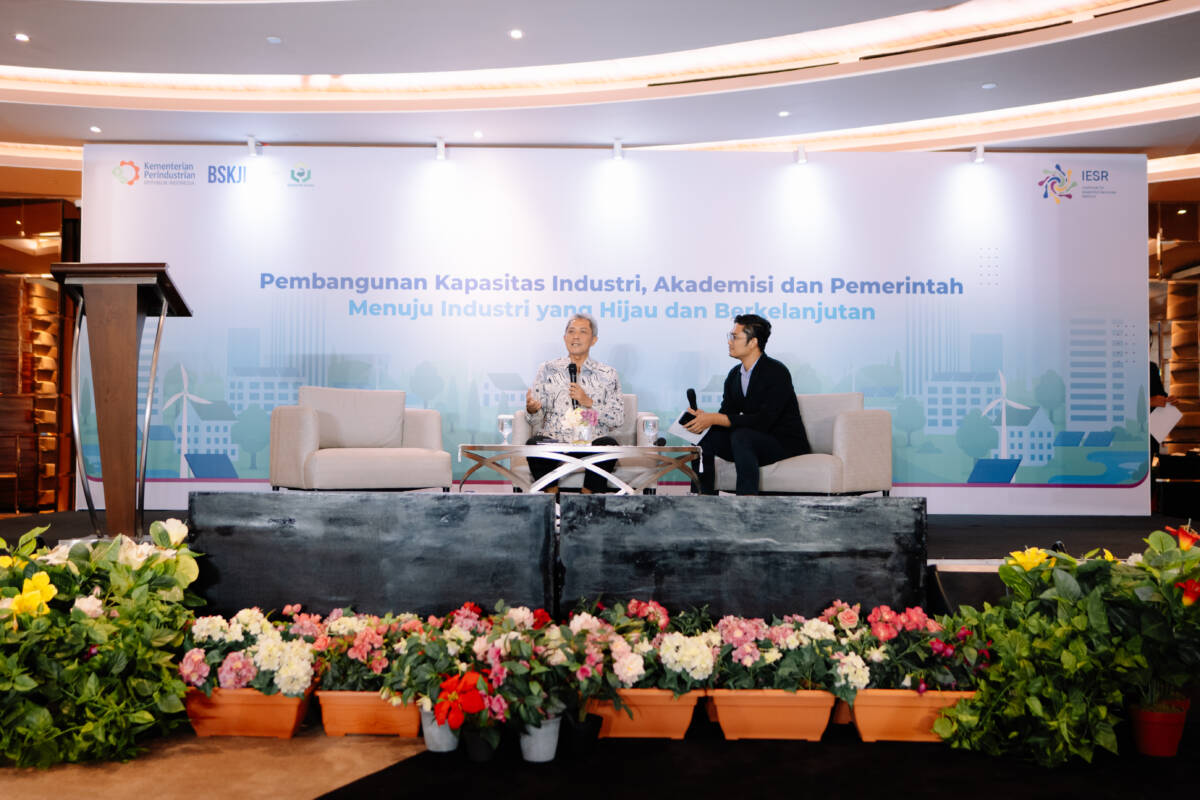Jakarta, 21 June 2024 – The industrial sector has a big role in Indonesia’s economic growth. However, the economic growth of the industrial sector is also accompanied by the high emissions it produces. To align economic growth and environmental harmony, various industry performance reporting standards and mechanisms were created. One of the reporting indicators is environmental, social and governance (Environment, Social, Governance, ESG).
Fano Alfian Ardiansyah, an ESG Trainer at the Industrial, Academic and Government Capacity Building towards a Green Industry workshop on Friday, 21 June 2024 said that ESG certification for companies or institutions is useful for seeing and assessing the institution’s performance in the aspect of sustainability and is complementary with other reporting systems.
“ESG reporting responds to risks and situations regarding environmental, social and governance aspects both internally and externally (affected communities and environments),” said Fano.
Institute for Essential Services Reform (IESR) Senior Analyst, Farid Wijaya, added that an operational ESG reporting system will play a critical role for regulators in making projections about Indonesia’s sustainability.
“The availability of data in ESG reporting includes the number of workforce absorption, the amount of energy consumption and the contribution of emissions produced. The data and evaluation from ESG reporting can be the basis for projections of future policies and regulations,” said Farid.
Sigit Reliantoro, Director General of Environmental Pollution and Damage Control, Ministry of Environment and Forestry explained one of the environmental certifications in Indonesia, namely PROPER (Public Disclosure Program for Environmental Compliance). PROPER is an environmental reporting system that has been implemented in Indonesia for 28 years since 1996.
Sigit also explained that by following PROPER, business entities can track and review their business activities and obtain data recaps and periodic reports each year such as IPAL (Waste-Water Treatment Installation) and emissions.
“When the industry has complete data, innovative steps can be taken based on evidence of empirical data trends,” he said.
Apart from PROPER, Indonesia also initiated Green Industry Certification under the Green Industry Center of the Ministry of Industry. Sylvia Diah Ayu Kusumawardani, from the Green Industry Center, Ministry of Industry, explained that green industry certification is an indicator that the industry continues to maintain sustainability and monitor efforts to reduce the emissions it produces.

